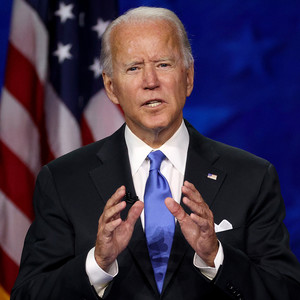UAE digital bank stops accepting dirham transfers from Russia

The neobank Wio, which operates in the UAE and until recently accepted money transfers in dirhams from individuals in Russia, has stopped doing so, financial consultants and clients of Wio Bank told RBK.
There are not many banks in the UAE that open accounts for Russian citizens (even if they have an Emirates ID, an analogue of a residence permit), if the person does not live in the country permanently and does not work in the UAE, but Wio does this, Andrey Avramenko, founder of the OhMySwift consulting service, told RBK, drawing attention to the problem.
"According to information from clients with whom our consultants work, there have been difficulties with sending transfers to an account at Wio Bank. The bank has stopped accepting dirhams from Russia and dollars and euros from Kazakhstan. The problem appeared around the end of June, and some clients began to experience difficulties already in the spring," Avramenko said.
An expert on investment citizenship, migration and personal finance, managing partner of Lenar Wealth Management Lenar Rakhmanov confirmed that problems with transfers to Wio Bank began in June 2024. According to him, for now the bank applies this ban selectively and makes exceptions for clients with very significant amounts in Wio Bank.
One of Wio Bank's clients told RBC that the bank rejected his money transfer in dirhams from the Russian BCS Bank. Another client tried to send funds from Kazakhstan, but the transfer was rejected by Wio, and after 15 days the money has still not returned to the account. Wio support responded to users that the refusals to credit are related to the bank's internal policy. In a conversation with one of them, a support representative reminded that Wio is regulated by the Central Bank of the UAE in matters of receiving and sending payments.
"The only option to send money from Russia [to the UAE] was dirhams. Not many banks in Russia officially work with them. If all UAE banks adopt this policy of banning the acceptance of dirhams from Russia, there will be no bank non-cash methods of transferring money," warns Avramenko. However, for now, other UAE banks remain available to Russian citizens: "For example, clients can make a money transfer to an account in another Emirati bank, and then send funds to an account in Wio within the country."
Wio could be attractive to Russian clients because it could open accounts online , issue multicurrency cards, provide deposits with high rates and access to the securities market, Avramenko listed. The bank's team includes people from Russian fintech, who have introduced advanced technologies into its processes, just like in top Russian banks.
"[The bank] was popular among Russians who have a Dubai residence permit. You could open an account even with a Russian passport, without coming to the office, just through the app," Rakhmanov said.
Wio was founded in 2022 in the UAE, with headquarters in Abu Dhabi. The credit institution operates as a digital platform and serves clients (legal entities and individuals) online. As of December 2023, the bank had more than 90 thousand clients.
RBC sent a request to a Wio representative.
Why Wio might stop accepting transfers from RussiaIn general, the situation with money transfers from Russia to the UAE has worsened, experts interviewed by RBC agree. "There have been more frequent cases when money from other countries is not accepted into the accounts of clients who hold a Russian or Belarusian passport, even if they have a residence permit in the UAE," says Rakhmanov. He believes that the situation will continue to worsen due to pressure from Western financial regulators and the risk of secondary sanctions, so having a local residence permit is not a solution for citizens of Russia or Belarus.
Russian clients have never been Wio's target group, and the bank "has always been reluctant to open accounts for Russian clients, so it is quite possible that they could have stopped accepting payments related to Russia in order not to complicate the work of their compliance department," says Ekaterina Popova, a partner at the consulting company ITSWM. She adds that the reason for stopping transfers could not have been a decision by Wio itself, but a problem at the level of its correspondent bank. "Only large UAE banks can afford to work with Russian clients in today's reality. Their compliance departments have already learned to work with Russian clients, and the volume of transactions allows banks to develop this area," Popova sums up.
Problems with international money transfers from Russia began in 2022 after sanctions were imposed on the financial system due to the military operation in Ukraine . The situation became more complicated in December 2023, when US President Joe Biden signed an executive order under which foreign banks could be subject to restrictions for assisting with transactions with sanctioned persons from Russia and supplies to the Russian defense industry. After that, another wave of tightening the terms of service for Russians in a number of foreign banks and difficulties with making payments and transfers, including in Chinese yuan and Turkish lira, began. In June, the US expanded the mechanism of secondary sanctions, due to which the number of sanctioned Russian entities, interaction with which may become the basis for US secondary sanctions, increases several times. In addition, Washington imposed sanctions against the Moscow Exchange and its structures, which led to the suspension of trading in dollars and euros in Russia.




























































